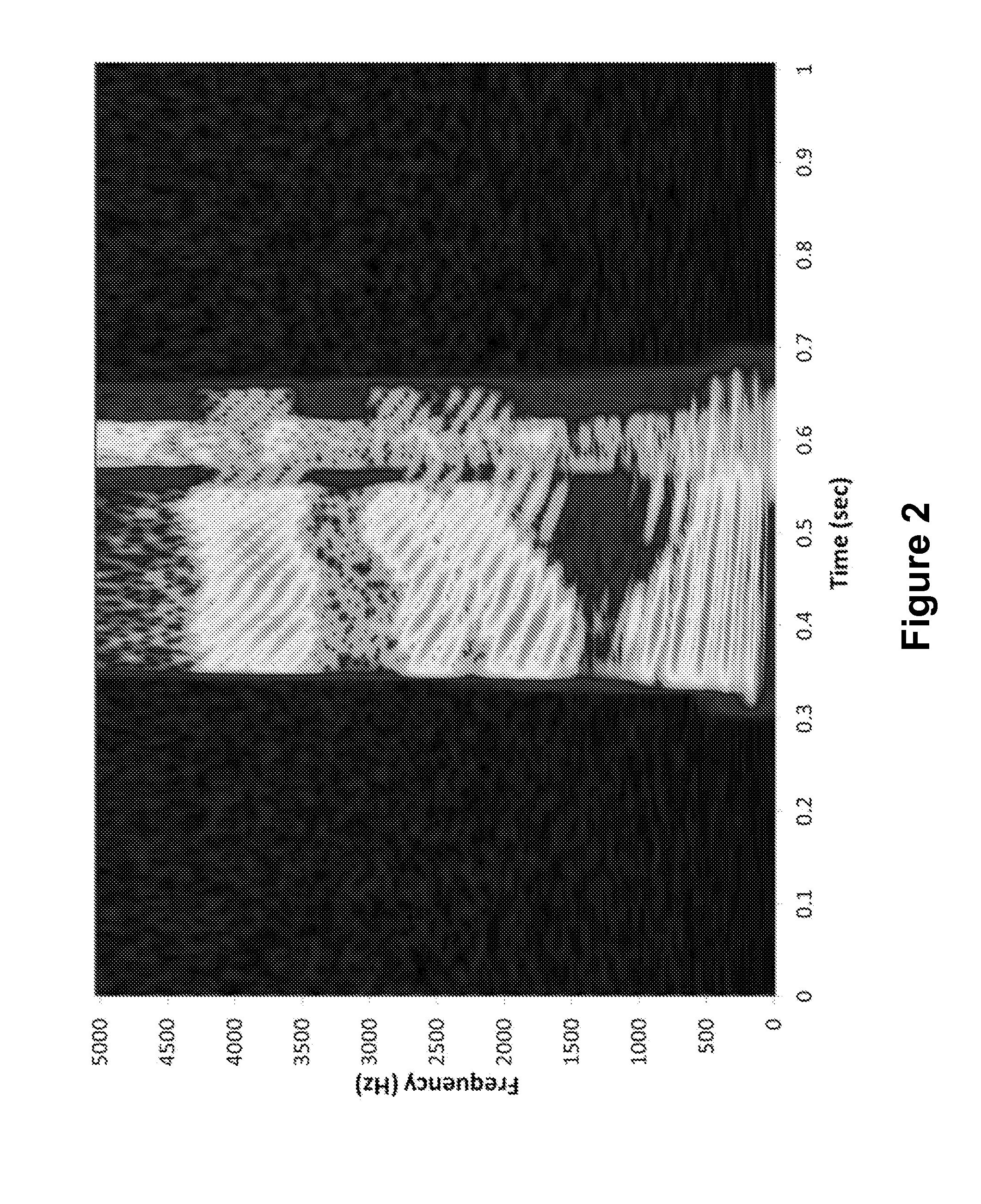Method and Apparatus for Evaluating Dynamic Middle Ear Muscle Activity
a technology measurement method, which is applied in the field of dynamic middle ear muscle activity measurement method and apparatus, can solve the problems that relevant information for speech processing and language development cannot reach the brain for processing, the middle ear is difficult to characterize, and the measurement method cannot be characterized as dynamic, etc., to achieve reliable, non-abrasive, and sensitive effects
- Summary
- Abstract
- Description
- Claims
- Application Information
AI Technical Summary
Benefits of technology
Problems solved by technology
Method used
Image
Examples
example 1
Assessment of Resting Middle Ear Muscle Tone by a New Measure of Energy Reflectance
List of Abbreviations in Example 1
ASR—Acoustic stapedial reflex; dB—ecibel; dB(A) and dB(C)—Weighting scales for noise exposure; DPOAE—Distortion product otoacoustic emissions; MESAS—middle ear sound absorption system; MESA—Middle Ear Sound Absorption; EqL—Equal loudness contour measured by custom software; GUI—Graphical user interface; Hz—Hertz (1 / second); LE—Left Ear; ME—Middle ear; MEM—Middle ear muscle; NiN—Numbers in Noise; NiN—50—Output of NiN test, the 50% threshold for detection; OAE—Otoacoustic emissions; RE—Right Ear; SPL—Sound pressure level (dB Re: 20 μPa)
[0090]This example investigates the covariation between neural regulation of the middle ear muscles and functional measures of hearing associated with sensitivity to noise and the ability to understand spoken words in the presence of noise. The example employs a novel measure of sound reflection and absorption within the ear canal. Study ...
example 2
Atypical Hearing Evaluation
[0238]This example investigates covariation between neural regulation of middle ear muscles and functional measure of hearing in a population of normal hearing young adults and atypical subjects. One measure of “hearing” relates to the ability to understand spoken words in the presence of noise. We use measurements from a novel device, referred herein as a “middle ear sound absorption system” (MESA). The MESA device as a number of advantages, including being a fast screening tool, with a reliable trial taking about 10 seconds, and at least two trials are provided per ear. The MESA device and procedure has a high test-retest reliability, including with probe replacement.
[0239]As discussed, the device and methods relate to measuring the absorption at the ear drum as a function of frequency, such as be detecting the reflected energy from an acoustic sound-wave input. In an embodiment, the input is a non-harmonic acoustic input comprising a comb input that imp...
PUM
 Login to View More
Login to View More Abstract
Description
Claims
Application Information
 Login to View More
Login to View More - R&D
- Intellectual Property
- Life Sciences
- Materials
- Tech Scout
- Unparalleled Data Quality
- Higher Quality Content
- 60% Fewer Hallucinations
Browse by: Latest US Patents, China's latest patents, Technical Efficacy Thesaurus, Application Domain, Technology Topic, Popular Technical Reports.
© 2025 PatSnap. All rights reserved.Legal|Privacy policy|Modern Slavery Act Transparency Statement|Sitemap|About US| Contact US: help@patsnap.com



